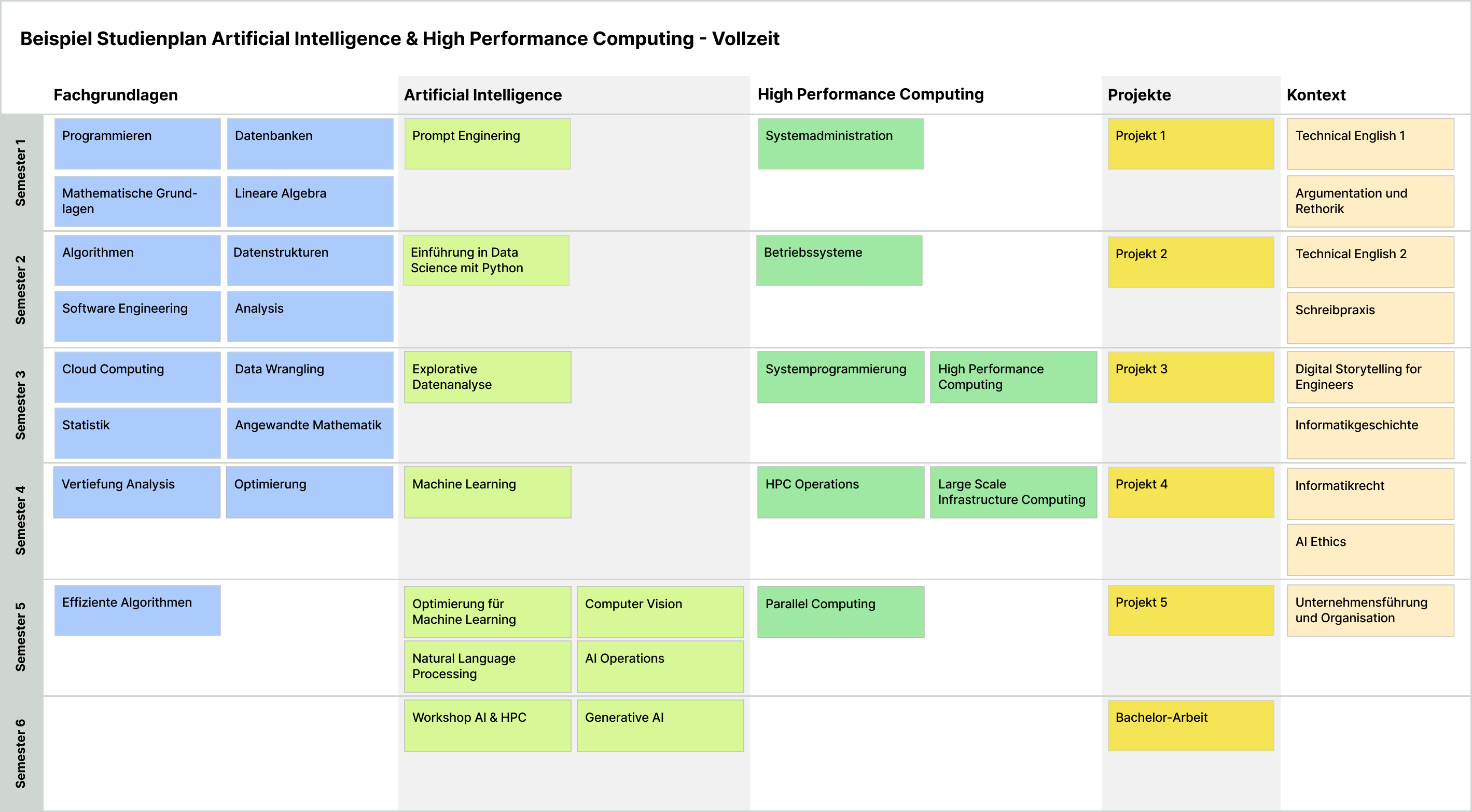What Does the Program Entail?
The foundational modules cover all important topics in computer science. From the first semester onwards, you will also attend specific and consecutive courses related to AI and HPC.
The specialized education in the AI & HPC program encompasses:
- Computer science with a focus on software engineering
- Theoretical foundations and mathematics
- Artificial intelligence methods with emphasis on algorithms and computing infrastructure
- Computer science and society
- English and intercultural communication
In the AI & HPC specialization, you will learn to develop, train, evaluate, and use AI models for industrial and scientific applications creatively and responsibly. You will work with efficient, large-scale, and highly optimized computing systems and scale computation across CPUs, GPUs, compute nodes, and clusters. From the first semester onwards, in addition to foundational computer science courses, you will complete specific courses in AI and HPC, such as Prompt Engineering, Introduction to Data Science, Machine Learning, Computer Vision, Generative AI, Parallel Computing, or Large-Scale Compute Infrastructures.
Most modules in the Artificial Intelligence & High Performance Computing program are taught by lecturers from the Institutes of the School of Computer Science: Institute for Data Science, Institute for Interactive Technologies, and Institute for Mobile and Distributed Systems.
The mathematics modules are taught by lecturers from the Institute for Mathematics and Natural Sciences from the School of Engineering and Environment.
You will attend context modules together with students from the School of Engineering and Environment. These modules are offered by lecturers from the Institute for Humanities and Social Sciences from School of Engineering and Environment.
In addition to the required foundational courses, you can customize your studies by selecting various modules according to your interests. You will have access to modules from both the Computer Science program and the Data Science program. Specialized modules will help you become an expert in Artificial Intelligence & High Performance Computing.
An important part of your studies are the projects that you implement with industry partners. You will complete a project each semester. The final semester project is at the same time your Bachelor's thesis. Your studies are complemented by context courses on society, economics, and languages.

